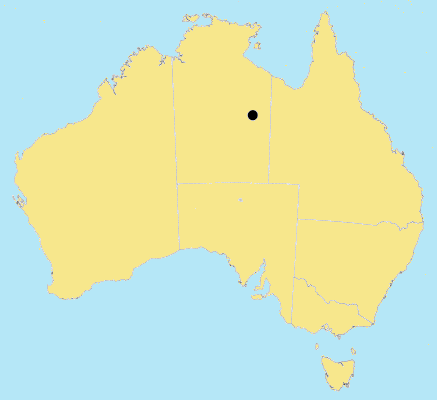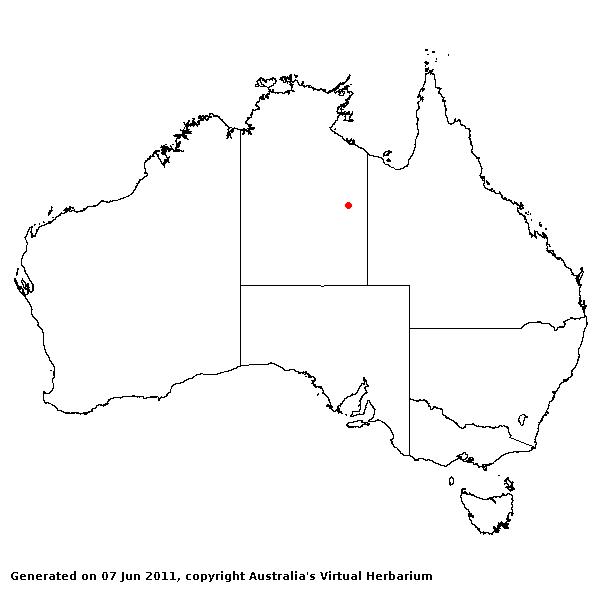Sporobolus latzii B.K.Simon. Austral.
Syst. Bot. 12: 399 (1999).
Classification. (GPWG 2001) : Subfamily
Chloridoideae. Cynodonteae.
Type of Basionym or
Protologue Information: Australia: Northern Territory: Soudan, Wakaya
Desert, 18 May 1993, P.K. Latz 13144 (HT: BRI; IT: CANB, DNA, NT).
Key references
(books and floras): [2002] D.Sharp & B.K.Simon, AusGrass, Grasses of
Australia.
Habit.
Perennial. Rhizomes present. Culms erect, 95 cm tall. Lateral branches simple.
Ligule a fringe of hairs, 0.2 mm long. Leaf-blades linear, flat, 16 cm long,
3.5 mm wide.
Inflorescence.
Inflorescence compound, a panicle. Panicle linear, 11–13 cm long.
Spikelets.
Spikelets pedicelled. Fertile spikelets 2–2.3 mm long.
Glumes. Lower
glume lanceolate, 0 -nerved. Upper glume lanceolate, 1.8 mm long.
Florets.
Fertile lemma 2.3 mm long, without keel, 1 -nerved. Palea apex entire. Anthers
3.
Continental
Distribution: Australasia.
Australian
Distribution: Northern Territory.
Northern Territory:
Central Australia North.
Notes.
The lower glume is more than half the spikelet length, which, together with the
short rhizome, are unique features in Australian species. It has a similarity
to the African species S. consimilis Fresen., which grows in a similar
climate and habitat in arid regions of Namibia, Botswana, Zimbabwe and S
Africa. The latter species is much more robust, however, and has both glumes as
long as the spikelets, compared to S. latzi with a lower glume slightly
more than half the spikelet length and the upper glume being slightly less than
the spikelet length. Both species are reed-like and rhizomatous. The species is
named for Peter Latz, prolific plant collector from the N.T.
Endemic;
only collected from type locality. In swamp with Psoralea cinerea and Leptochloa
parviflora; flowers May.


